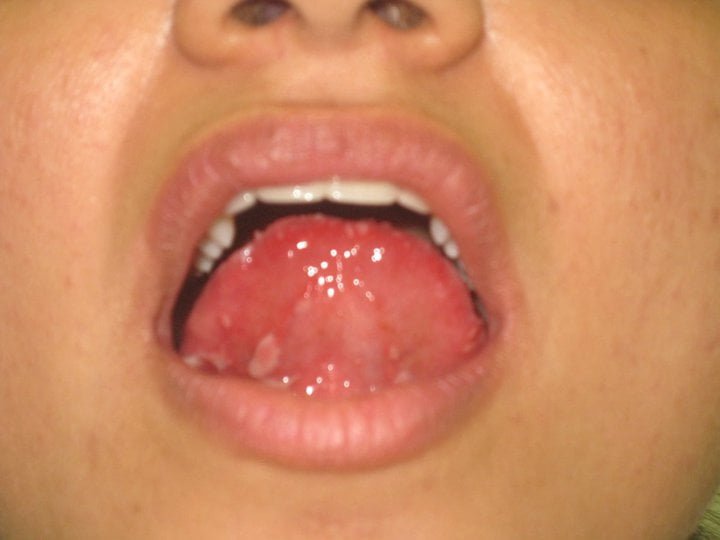What are aphthous mouth ulcers?
Aphthous mouth ulcers are small, painful sores that can occur anywhere inside the mouth, such as the gums, cheeks, and the tongue. They are the most common type of mouth ulcer and are also known as canker sores. They are usually round or oval and have a red border with a white or yellow center, and at least 1 in 5 people will experience them at some point in their lives. The exact cause is not known, but they can be triggered by a variety of factors, including stress, trauma, certain foods, and underlying medical conditions. They usually heal on their own within a week or two.
There are three types:
- Minor aphthous ulcers are the most common (8 in 10 cases). Only one ulcer may develop, but up to five may appear at the same time. They are not usually very painful.
- Major aphthous ulcers occur only one or two at a time. Each ulcer lasts from two weeks to several months, and then goes but leaves a scar. They can be very painful – eating may become difficult.
- Pinpoint aphthous ulcers are tiny, and many occur at the same time, but some may join together and form irregular shapes. These are sometimes called ‘herpetiform ulcers’, but they have nothing to do with herpes or the herpes virus.
What causes these ulcers?
The cause is not known. They are not infectious, and you cannot ‘catch’ aphthous mouth ulcers.
- In most cases, the ulcers develop for no apparent reason in people who are healthy.
- In some cases, the ulcers are related to other factors or diseases. These include:
- Injury – such as badly fitting dentures, a graze from a harsh toothbrush, etc.
- Changes in hormone levels.
- Some ex-smokers find they develop ulcers only after stopping smoking.
- A lack of iron, or a lack of certain vitamins may be a factor in some cases.
- Rarely, a food allergy may be the cause.
- Stress or anxiety is said to trigger aphthous mouth ulcers in some people.
- A reaction to a medication is a rare cause.
What are the treatment options?
Treatment aims to ease the pain and to help them to heal as quickly as possible.
- No treatment may be needed. The pain is often mild, particularly with the common ‘minor’ type of aphthous ulcer. Each bout of ulcers will go without treatment.
- General measures include:
- Avoid spicy foods, acidic fruit drinks, and very salty foods.
- Use a very soft toothbrush. See a dentist if you have badly fitting dentures.
- If you suspect a medication is causing the ulcers, then a change may be possible.
- Steroid paste (gel)
- A painkilling oral gel.
- Other treatments may be tried if the above do not help or where the pain and ulceration are severe.
When should I see a doctor?
Aphthous mouth ulcers can be painful, are often a nuisance, but are not serious. But remember, not all mouth ulcers are aphthous ulcers. Other types of ulcers can occur in the mouth. Also, cancer of the mouth may sometimes first seem like a mouth ulcer.


Recent Comments